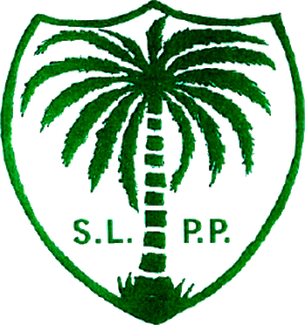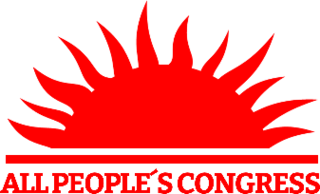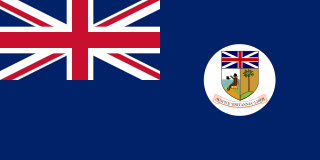
Sierra Leone, officially the Republic of Sierra Leone, is a country on the southwest coast of West Africa. It is bordered to the southeast by Liberia and by Guinea to the north. Its land area is 71,740 km2 (27,699 sq mi). It has a tropical climate and environments ranging from savannas to rainforests. As of the 2023 census, Sierra Leone has a population of 8,908,040. Freetown is both its capital and its largest city. The country is divided into five administrative regions, which are further subdivided into 16 districts.
Sierra Leone first became inhabited by indigenous African peoples at least 2,500 years ago. The Limba were the first tribe known to inhabit Sierra Leone. The dense tropical rainforest partially isolated the region from other West African cultures, and it became a refuge for peoples escaping violence and jihads. Sierra Leone was named by Portuguese explorer Pedro de Sintra, who mapped the region in 1462. The Freetown estuary provided a good natural harbour for ships to shelter and replenish drinking water, and gained more international attention as coastal and trans-Atlantic trade supplanted trans-Saharan trade.

The Sierra Leone People's Party (SLPP) is one of the two major political parties in Sierra Leone, along with its main political rival the All People's Congress (APC). It has been the ruling party in Sierra Leone since 4 April 2018. The SLPP dominated Sierra Leone's politics from its foundation in 1951 to 1967, when it lost the 1967 parliamentary election to the APC, led by Siaka Stevens. Originally a centre-right, conservative party, it identifies since 2012 as a centre-left social democratic party, with a centrist tendency.

The president of the Republic of Sierra Leone is the head of state and the head of government of Sierra Leone, as well as the commander-in-chief of the Armed Forces.

Siaka Probyn Stevens was the leader of Sierra Leone from 1967 to 1985, serving as Prime Minister from 1967 to 1971 and as President from 1971 to 1985. Stevens' leadership was often characterized by patrimonial rule and self-indulgence, consolidating power by means of corruption and exploitation.

Major General Joseph Saidu Momoh, OOR, OBE was a Sierra Leonean politician and military officer who served as the second President of Sierra Leone from November 1985 to 29 April 1992.

The All People's Congress (APC) is one of the two major political parties in Sierra Leone, the other being its main political rival the Sierra Leone People's Party (SLPP). The APC has been the main opposition party in Sierra Leone since 4 April 2018 when Julius Maada Bio of the SLPP won the 2018 presidential elections, though it maintains a majority in parliament.

Parliament of Sierra Leone is the legislative branch of the government of Sierra Leone. It is principally responsible for making laws. The Sierra Leone parliament consists of 149 members, of which 135 members are directly elected from across Sierra Leone's 16 districts, while 14 are paramount chiefs appointed from the 14 rural districts. The parliament is led by the Speaker of the House; the position is currently held by Abass Bundu of the Sierra Leone People's Party. The current elected 135 ordinary members of parliament are composed of members of the All People's Congress and the Sierra Leone People's Party which are the two largest political parties in Sierra Leone.

General elections were held in Sierra Leone on 11 August 2007. Seven candidates competed in the first round of the presidential election; no candidate received the necessary 55% of the vote to win in the first round, and a second round was held between the top two candidates, Ernest Bai Koroma of the All People's Congress (APC) and Solomon Berewa of the Sierra Leone People's Party (SLPP), on 8 September. According to official results, Koroma won the election with 54.6% of the vote.

A referendum to confirm the presidential candidate Joseph Saidu Momoh was held in Sierra Leone on 1 October 1985. It was the country's first direct vote for president. At the time, the country was a one-party state with the All People's Congress as the only legal party.

A referendum on a new constitution was held in Sierra Leone in August 1991. Voting was held over four days. The new constitution would restore multi-party politics, as the country had been a one-party state since the 1978 constitutional referendum made the All People's Congress the only legally permitted party.

Parliamentary elections were held in Sierra Leone on 29 and 30 May 1986. As the country was a one-party state at the time, the All People's Congress was the only party allowed to run. They were the last elections held under the 1978 constitution, as a 1991 referendum returned the country to multi-party politics.

Parliamentary elections were held in Sierra Leone on 6 May 1977. They were the last multi-party elections held in the country until 1996.

In April 1961, Sierra Leone became politically independent of Great Britain. It retained a parliamentary system of government and was a member of the British Commonwealth of Nations. The Sierra Leone People's Party (SLPP), led by Sir Milton Margai were victorious in the first general election under universal adult franchise in May 1962. Upon Sir Milton's death in 1964, his half-brother, Sir Albert Margai, succeeded him as prime minister. Sir Albert attempted to establish a one-party state had the ready cooperation of the opposition All People' Congress but met fierce resistance from some cadre within his party Sierra Leone People's Party (SLPP) and ultimately abandoned the idea.

Victor Bockarie Foh is a Sierra Leonean politician who served as Vice President of Sierra Leone from 19 March 2015 to 4 April 2018. Foh replaced Samuel Sam-Sumana as vice president, after Sam-Sumana was sacked by President Ernest Bai Koroma.

The Constitution of Sierra Leone is the supreme law governing Sierra Leone and delineates its frame of government. It entered into force on October 1, 1991, following a popular referendum and approval by President Joseph Momoh. It superseded the 1978 Constitution.

General elections were held in Sierra Leone on 7 March 2018 to elect the President, Parliament and local councils. Incumbent President Ernest Bai Koroma did not run for another term, as he was constitutionally ineligible, having served the maximum ten years in office.

The Colony and Protectorate of Sierra Leone was the British colonial administration in Sierra Leone from 1808 to 1961, part of the British Empire from the abolitionism era until the decolonisation era. The Crown colony, which included the area surrounding Freetown, was established in 1808. The protectorate was established in 1896 and included the interior of what is today known as Sierra Leone.
The Sergeants' Coup was a military coup d'état in Sierra Leone that occurred on 18 April 1968 against Chairman of the National Reformation Council (NRC) and acting Governor-General of Sierra Leone Brigadier Andrew Juxon-Smith, who declared himself the interim leader the year prior. The coup was led by Brigadier John Amadu Bangura who briefly ruled as head of state before handing power over to Siaka Stevens, who had won the 1967 general election. Despite Bangura's desire to restore democracy by upholding the results of the election, the coup opened the way for the autocratic rule of Stevens, including the 23-year-long period from 1978-1991 where the All People's Congress was the only legal party in Sierra Leone following the 1978 Sierra Leonean constitutional referendum, a sham election where 97% of the population voted in favor of one-party rule. Despite returning Stevens to power, Bangura was later executed for treason.












